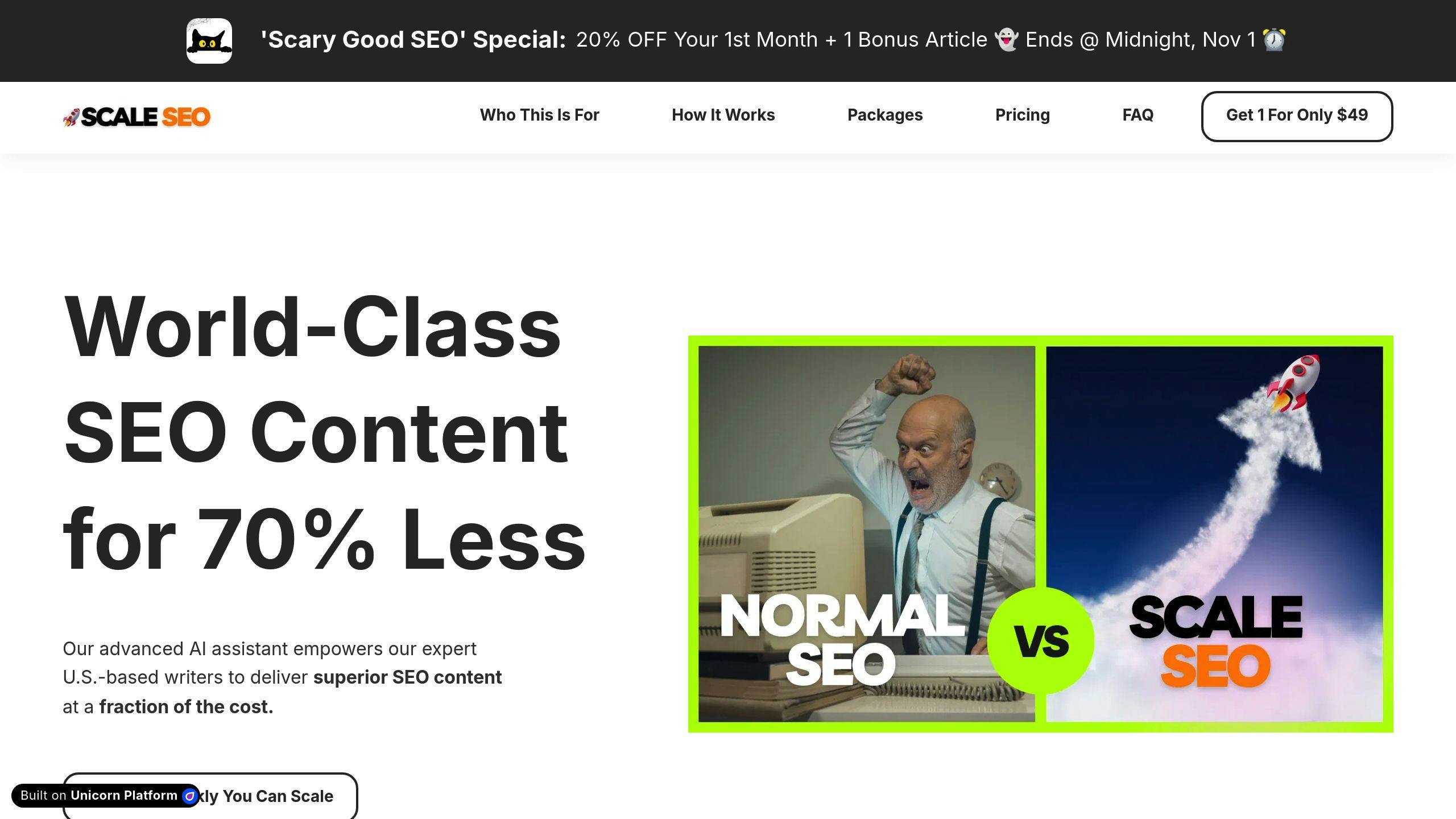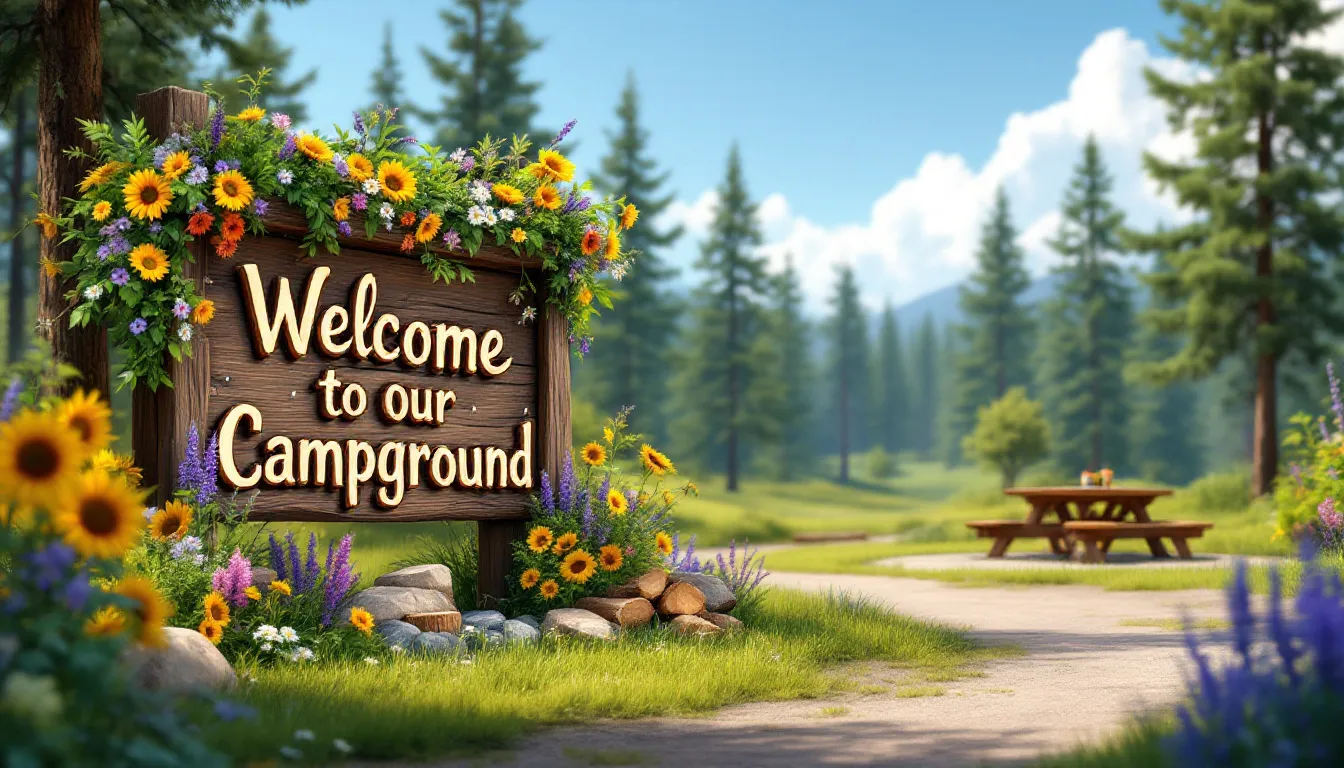Visual storytelling is now a must-have for SEO and digital marketing in 2024. It’s not just about adding visuals - it’s about using images, videos, and infographics to tell a compelling story that engages users and improves search rankings. Here’s what you need to know:
- Why it matters: Content with visuals gets 94% more views and keeps users on your site longer, boosting SEO.
- Best visuals to use: Infographics (for shares and backlinks), short videos (for engagement), and branded images (for trust and recognition).
- Key practices: Optimize visuals for speed, use keywords in file names and alt text, and maintain consistent branding across platforms.
- Emerging trends: AI tools, AR, interactive visuals, and short-form video are reshaping how businesses connect with audiences.
Whether you’re a small business or a large brand, leveraging visual storytelling effectively can help you stand out, drive traffic, and improve your online presence.
Mastering Marketing Strategies with Video in 2024
Core Elements of Visual Storytelling
Creating Visual Content That Connects
Visuals aren't just about adding flair - they should amplify your message while supporting SEO goals. Thoughtfully chosen images, videos, and infographics can help break down complex ideas and keep your audience engaged.
Here are some key types of visual content and their strengths:
| Visual Type | Purpose | SEO Benefits | Ideal Platforms |
|---|---|---|---|
| Short-form Videos | Boost engagement | Longer time on page | Social media, websites |
| Infographics | Simplify data | Attract backlinks | Blog posts, reports |
| 360° Images | Offer interactivity | Lower bounce rates | Product pages |
| Brand Images | Build recognition | Align with visual search | Headers, about pages |
Crafting a Clear Visual Narrative
Strong storytelling pulls viewers in and keeps them engaged. When visuals are used strategically, they guide your audience through the content in a way that feels natural and compelling.
"The human brain is wired to love stories, making visual narratives more engaging and memorable." [1]
Start with a bold, eye-catching header image to grab attention. Use supporting visuals to clarify your main points, and finish with a striking visual call-to-action that encourages interaction. Each image or graphic should have a clear role in your story. Once your narrative is defined, ensure it’s consistent across all platforms for a unified experience.
Maintaining Consistency Across Platforms
Consistency in visuals strengthens your brand and makes it easier for audiences to recognize your content, no matter where they see it. Here’s how to achieve it:
- Stick to color schemes that match your brand identity.
- Use typography that’s easy to read on all devices.
- Choose image styles that give your content a cohesive feel.
- Place your logo in line with branding guidelines.
Don’t forget to optimize image sizes and compress files to balance quick load times with high quality. Once your visuals are consistent, you can shift your attention to fine-tuning their performance for better results.
Best Practices for Visual Storytelling in SEO
Improving Visuals for Speed and SEO
Fast-loading visuals are crucial for better rankings and avoiding lost conversions. Research shows that even a 1-second delay in page load time can reduce conversions by 7% [1]. To keep load times quick, compress images using professional tools that maintain quality. Select the right file formats: use JPEG for photos and PNG for graphics with transparent backgrounds. Implement lazy loading to display images only as users scroll, which helps speed up the initial load.
Here's a quick guide to image settings:
| Image Type | Recommended Format | Max File Size |
|---|---|---|
| Product Photos | JPEG | 200KB |
| Infographics | PNG | 500KB |
| Blog Headers | JPEG | 300KB |
| Logo Graphics | SVG/PNG | 100KB |
Adding Keywords to Visual Elements
Incorporating keywords into visuals helps search engines better understand your content. Start with descriptive file names that include your target keywords. For instance, instead of "IMG_001.jpg", name your file something like "cloud-computing-infrastructure.jpg" for an image about cloud systems.
Alt text is another essential element. It boosts accessibility and SEO by providing detailed descriptions that naturally include keywords. For example: *"Alt text: 'Infographic showing 2024 SEO trends with visual storytelling examples.'"
Captions and video descriptions are also opportunities to use keywords naturally. These additions not only improve SEO but also help users grasp the context of your visuals.
Using Visuals to Simplify Data
Visuals are powerful tools for breaking down complex information into digestible formats. Interactive charts, process diagrams, and comparison graphics can make data easier to understand while keeping readers engaged. Stick to consistent colors and icons to ensure your visuals align with your brand's overall style.
Once your visuals are optimized and integrated, you can explore advanced options like interactive elements or AI tools to elevate your storytelling even further.
sbb-itb-e98aa53
Advanced Visual Storytelling Techniques
Using Interactive Visuals
Interactive visuals can make your content stand out by offering an engaging and dynamic experience. For example, clickable infographics let users explore data interactively, which can boost engagement by 40-60%.
| Interactive Format | Best Use Case | Typical Engagement Increase |
|---|---|---|
| Clickable Infographics | Data Visualization | 40-60% |
| 360° Product Views | E-commerce | 25-35% |
These formats not only grab attention but also make information easier to digest, encouraging users to spend more time with your content.
AI Tools for Creating Visual Content
AI-powered tools are transforming how businesses create visual content. By automating complex tasks, these tools allow even small businesses to produce professional-quality visuals without requiring extensive expertise. Some tools can cut production time by up to 70%, making it easier to create consistent, on-brand content across various formats.
Using AI tools, businesses can efficiently craft visuals that align with their storytelling goals while saving time and resources. This makes it possible to deliver polished, engaging visuals without compromising quality.
Combining Text, Images, and Videos
Blending text, images, and videos effectively can elevate your storytelling. To keep your audience engaged, ensure each format adds something unique - don’t just repeat the same information in different forms. For instance:
- Use text to explain key points.
- Add images to illustrate or support the text.
- Incorporate videos for dynamic, in-depth storytelling.
Consistency is key. Stick to your brand's colors, fonts, and style to create a unified look and feel. Breaks between different media types can also help maintain interest, giving your audience a chance to absorb the information before moving on.
How ScaleSEO Can Help with Visual Storytelling

What ScaleSEO Offers
ScaleSEO combines AI-powered tools with skilled U.S.-based writers to deliver SEO-focused visual storytelling. Their services include optimizing visuals, integrating them seamlessly into written content, improving technical SEO, and ensuring a steady publishing schedule.
| Service Component | Description | Benefit |
|---|---|---|
| Visual Optimization | Compressing images and optimizing alt text | Faster page load times and improved SEO |
| Content Integration | Blending visuals with professional writing | A seamless storytelling experience |
| Technical SEO | Conducting keyword research and building links | Better search rankings and visibility |
| Publishing Strategy | Maintaining a regular content schedule | Consistent audience engagement |
These services focus on speed, consistency, and engagement, providing a streamlined approach to visual storytelling.
How ScaleSEO Supports Visual Storytelling
ScaleSEO takes a balanced approach to visual storytelling, crafting content that appeals to both search engines and readers. Their expert writers create compelling narratives that naturally include visuals, while AI tools ensure everything is technically optimized.
They enhance visual content by:
- Strategically placing videos to boost engagement
- Maintaining consistent visual branding
- Incorporating multimedia elements effectively
- Tailoring visual optimization to specific needs
Why ScaleSEO Works for Small Businesses
Many small businesses face challenges in producing consistent, quality visual content. ScaleSEO makes this easier with flexible, affordable solutions. Their pricing options range from single articles to full-service monthly plans, allowing businesses to choose what fits their needs and budget.
From keyword research to publishing, ScaleSEO handles the entire visual storytelling process. This makes it easier for small businesses to compete in the ever-changing SEO world without overstretching their resources.
Conclusion and Trends in Visual Storytelling
Key Actions for Small Businesses
For small businesses, incorporating visual storytelling into their SEO strategy is essential for capturing audience attention and improving engagement. Here’s how to get started:
- Optimize Images: Compress files and include alt text with relevant keywords.
- Blend Visuals with Text: Ensure visuals complement and enhance written content.
- Maintain Brand Consistency: Use visuals that align with your brand identity.
- Analyze Performance: Monitor metrics like click-through rates and time on page to adjust your visual strategy.
By focusing on these steps, small businesses can improve their online presence and connect more effectively with their audience.
Emerging Trends in Visual Storytelling
The landscape of visual storytelling is shifting, with new trends influencing digital marketing and SEO. Technologies like AI and AR are transforming how businesses create and share content, offering dynamic ways to engage users.
| Trend | Impact | How to Apply |
|---|---|---|
| AI-Generated Visuals | Streamlined content creation | Use AI tools for infographics and designs |
| AR (Augmented Reality) | Boosts interaction and engagement | Incorporate 360° images or AR features |
| Short-Form Video | Improves retention rates | Focus on platforms like TikTok and Instagram Reels |
| Interactive Content | Encourages user participation | Add polls, quizzes, or clickable infographics |
"The human brain is hardwired to love stories. Whether it's through visual storytelling, metaphors, or real-life case studies, the narrative structure helps us process and retain information more effectively." - Content Whale [1]
With the rise of AI tools and multimedia content, small businesses have the opportunity to create engaging, cost-effective campaigns. As search engines increasingly favor visual content, adapting to these trends will lead to higher engagement and better SEO performance. By refining their storytelling approach, businesses can remain competitive and thrive in 2024.


